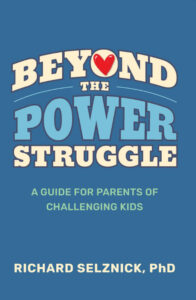 “So, what if I have dyslexia?”
“So, what if I have dyslexia?”
The question threw me a bit, especially since it was coming from a nine-year-old boy.”
99% of the time when I ask a child, even a teenager, whether they have any questions following an introductory session, they shake their head saying “no.”
Before asking the question, I even play a game with them saying that I’m going to prove that I’m a mind reader, writing down the word “no “before they respond. It’s fun, especially when they buy into idea that I had read their mind before they answered.
Not this time, however. Effectively, this nine-year-old boy wanted to know, “What if I am dyslexic? What does that mean?”
I found myself shuffling a bit, flashing through my mind various implications of someone (a child) having dyslexia. I wanted to answer him as straightforwardly as I could, as I sensed this young man would have a ready BS detector if I didn’t give him a straight answer.
“Here’s what it means. It’s going to help you understand yourself better. School’s been pretty hard for you and you’re starting to think you’re not as smart as other kids, right?” (He nods.)
“Well, I’m going to prove to you that you’re pretty smart, even though reading and spelling have been hard for you. Look, you think your dad’s pretty smart, right?” (He nods again.)
“Well, dyslexia is like a pass down. You’ve got a lot of your dad’s good traits. But some of them, like struggling with reading and spelling are also in the mix.”
“So, if the testing indicates dyslexia, we’ll talk about the things that you can do to make it a little easier and we’ll talk about the kind of instruction you should receive and how it’s going to be a lot of hard work to get better. How does that sound?”
“Sounds good, but I have one more question…”
(Oh, no!!!! Did he not know the time and that I was feeling the stress of my next appointment?)
I joke back with him, “Listen, brother,” I say. “I’d love to answer your questions, especially since almost no kids ask me any questions. But, for now I need you to have your mom write them down. We can talk about them in the next session, since I have someone trying to get in for their appointment.”
Thankfully, he accepted that response and he let me off the hot seat!
Takeaway Point
What a great kid. I hope he was satisfied with my answers.
Feel free to make comment below.
To receive future blog posts, register your email: https://shutdownlearner.com.
To Contact Dr. Richard Selznick for advice, consultation or other information, email: shutdownlearner1@gmail.com.

 Copyright, Richard Selznick, Ph.D. 2023, www.shutdownlearner.com.
Copyright, Richard Selznick, Ph.D. 2023, www.shutdownlearner.com.

 A number of years ago, I had the good fortune to take part on a panel during a symposium on dyslexia sponsored by the grassroots parenting group, Decoding Dyslexia: NJ. Dr. Sally Shaywitz, the author of “Overcoming Dyslexia” was the keynote speaker. While talking about assessing dyslexia, Dr. Shaywitz said something that really struck me, as it reminded of something I had been saying for years.
A number of years ago, I had the good fortune to take part on a panel during a symposium on dyslexia sponsored by the grassroots parenting group, Decoding Dyslexia: NJ. Dr. Sally Shaywitz, the author of “Overcoming Dyslexia” was the keynote speaker. While talking about assessing dyslexia, Dr. Shaywitz said something that really struck me, as it reminded of something I had been saying for years. Parents commonly come in with common questions such as, “Does their child have ADHD?” or “Is my child dyslexic?”
Parents commonly come in with common questions such as, “Does their child have ADHD?” or “Is my child dyslexic?”